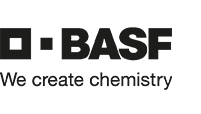 LUDWIGSHAFEN, Germany — August 8, 2024 — BASF gives a clear sign towards biotransformation of their (Meth)Acrylate portfolio and switches their production to bio-based Ethyl Acrylate (EA) starting Q4 2024. With a 14C-traceable bio content of 40 percent according to DIN EN 16640 and a low Product Carbon Footprint (PCF1), bio-based EA from BASF helps customers worldwide to reach their sustainability goals. The product offers a PCF reduction of approximately 30 percent compared to fossil-based EA. Additionally to regular bio-based EA, BASF also offers bio-based Ethyl Acrylate BMB ISCC Plus.
LUDWIGSHAFEN, Germany — August 8, 2024 — BASF gives a clear sign towards biotransformation of their (Meth)Acrylate portfolio and switches their production to bio-based Ethyl Acrylate (EA) starting Q4 2024. With a 14C-traceable bio content of 40 percent according to DIN EN 16640 and a low Product Carbon Footprint (PCF1), bio-based EA from BASF helps customers worldwide to reach their sustainability goals. The product offers a PCF reduction of approximately 30 percent compared to fossil-based EA. Additionally to regular bio-based EA, BASF also offers bio-based Ethyl Acrylate BMB ISCC Plus.
Here, the remaining carbon content originated from fossil based acrylic acid is ISCC PLUS certified, and by applying BASF’s biomass balance (BMB2) approach, this variant offers a further reduced product carbon footprint.
BASF’s bio-based EA is produced in Ludwigshafen using bioethanol exclusively as alcohol source. The chemical and technical specifications of the new bio-based product are identical with the traditional fossil-based version. “With bio-based EA we can offer our customers a readily available drop-in solution for many applications. Ethyl Acrylate is a well-established product that will support our customers in reaching their sustainability goals. We also want to give a clear signal to the market that we drive our own sustainability transformation. From Q4 2024 onwards, we will phase out fossil-based EA and exclusively offer bio-based Ethyl Acrylate going forward,” said Dr. Reiner Geier, senior vice president, Industrial Petrochemicals Europe.
BASF’s bio-based Ethyl Acrylate uses sustainable bioethanol predominantly from European sources with grain as a feedstock. BASF applies strict sustainability criteria for the material use of biomass. The bioethanol purchased by BASF does not compete with food production: Bioethanol is mainly produced from residues of starch production, lower quality grains or molasses, all of which are not used in food production. Grains that are neither suitable for use as food nor feed can also be used for bioethanol production.
Bio-based EA offers a broad application range and can be used in a wide variety of polymer dispersion applications, with the Coatings and Adhesives industries as the primary target industries.
BASF’s bio-based Ethyl Acrylate is ‘OK biobased’3 certified by TÜV Austria since March 2024.
1 BASF’s product carbon footprint (PCF) calculations for conventional products follow the requirements and guidance given by ISO 14067:2018. A TÜV Rheinland methodology review has certified that the SCOTT PCF methodology developed and used by BASF SE is based on scientific evidence, meets ISO 14067:2018 and the Together for Sustainability PCF policy, and reflects the state of the art (ID no. 0000080389: BASF SE – Certipedia). TÜV Rheinland also confirms that the biomass balance (BMB) PCF calculation method and the associated PCF reduction for BMB-certified products follow the conventional LCA method in accordance with ISO 14067 and the Together for Sustainability (TfS) policy.
2 Find out more about BASF’s biomass balance approach at: https://www.basf.com/global/en/who-we-are/sustainability/we-drive-sustainable-solutions/circular-economy/mass-balance-approach/biomass-balance.html.
3 Find out more about the ‘OK biobased’ certification here: https://en.tuv.at/ok-biobased-en/
Posted: August 8, 2024
Source: BASF




